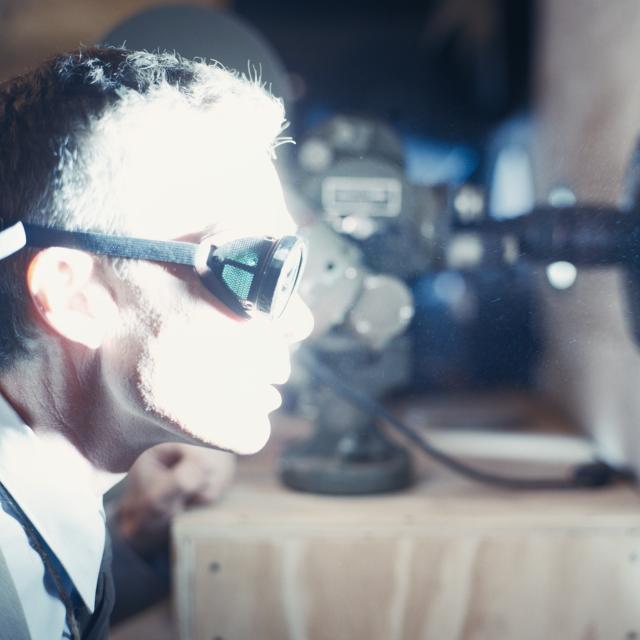
Dr Daniele Brida is Professor of Physics at the University of Luxembourg. With the release of the blockbuster Oppenheimer in cinemas this summer, we wanted to talk to a real physicist to find out whether the film was realistic, whether it would inspire people to take up physics or whether he liked to see his colleagues on the big screen. Interview.
Lëtzebuerger Journal: You went to see Oppenheimer at the cinema this summer. What did you think of it and how does it feel to see great physicists on the big screen?
Daniele Brida: I checked briefly before this interview to see which films were about physics. And there's only one, The Theory of Everything, which is about the life of Stephen Hawking. There's always physics in the background, but it's never the subject of the film. Oppenheimer was the only film in which I knew all the scientific characters.
What I didn't know very well was the history and its political aspects. I knew that after the war, Oppenheimer didn't do much, but I didn't know that his security clearance had been withdrawn, and I didn't know the reasons for that decision. In the film they discuss German scientists, Werner Heisenberg (winner of the 1932 Nobel Prize in Physics for the creation of quantum mechanics, the application of which led, among other things, to the discovery of allotropic varieties of hydrogen, editor's note), old names that I know perfectly well. And I know how they were involved. When they introduced, for example, Klaus Fuchs, one of the spies on the Manhattan Project, I knew straight away what he was about and why he was being introduced in that way, which was pretty cool. For me, that's never happened in a film, there's never been a film about what we do. And this one did it in a rather nice way. Of course, I can understand that they can't discuss the technical details, but it was nice because the pace is very tight. I enjoyed it, and it was very nice to recognise characters I know very well, portrayed in a certain way.
The last time physicists were on-screen, it was the friendly geeks in the American series The Big Bang Theory… Did that help to inspire people to take up physics?
The series became a kind of caricature of itself, but in the beginning it was charming in a way. Unfortunately, it didn't do much good because the target audience is still the mass market. And because there's a lack of literacy on these subjects, when you discuss the Big Bang theory or put down equations, the public doesn't get it. So interactions involving physics have the effect of switching off the brain, which learns nothing about the subject. Because there's no curiosity about it.
You want more? Get access now.
-
One-year subscription€185.00/year
-
Monthly subscription€18.50/month
-
Zukunftsabo for subscribers under the age of 26€120.00/year
Already have an account?
Log in


